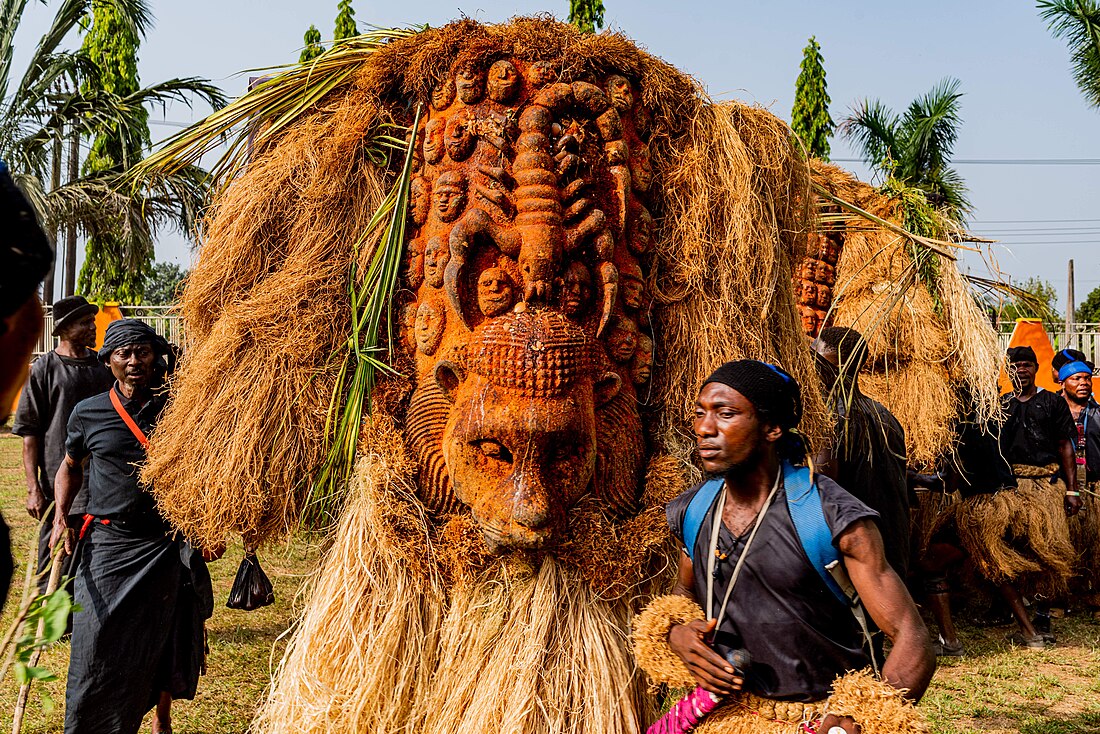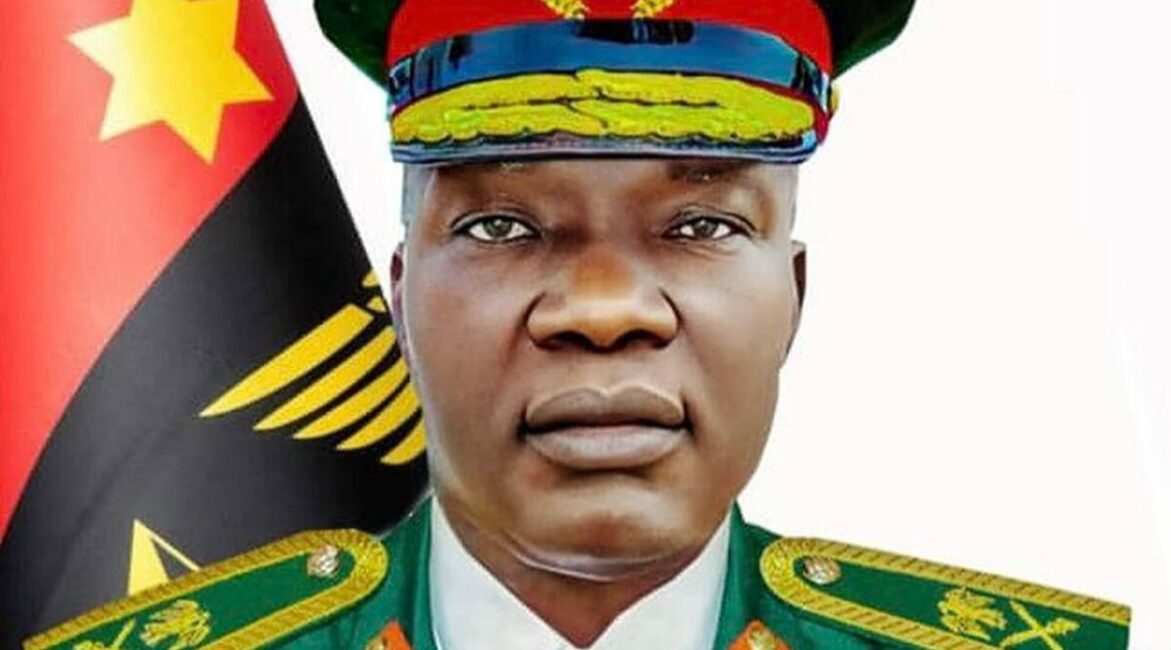Exploring the Rich Ekpe Culture of Ikwuano: A Heritage of Tradition and Identity
by admin on | 2024-11-05 10:09:06
Share: Facebook | Twitter | Whatsapp | Linkedin

By Isabella Nwankwo
Ikwuano Local Government Area in Abia State is known for its vibrant culture, deeply rooted in centuries-old traditions. One of the most significant aspects of this rich cultural tapestry is the Ekpe society—an age-old secret society that has played a pivotal role in shaping the social, political, and spiritual life of the Ikwuano people. The Ekpe culture, with its distinctive rituals, beliefs, and governance systems, is a testament to the strength of Ikwuano’s heritage and identity.
The Origins of Ekpe: A Cultural Pillar
The Ekpe society, also known as “Leopard Society,” traces its origins to the southeastern part of Nigeria, particularly among the Ibo and Efik people. However, in Ikwuano, it has become an intrinsic part of the community’s culture, influencing every aspect of life from governance to religious practices. Ekpe is more than just a society—it is a cultural institution that represents power, wisdom, and tradition. It serves as the custodian of the people’s customs, laws, and moral codes.
In Ikwuano, Ekpe members are deeply respected, often acting as mediators in disputes and as the enforcers of traditional laws. The society is also a powerful symbol of unity, as it brings together individuals from different villages within Ikwuano to maintain the cohesion and harmony of the community.
Rituals and Initiations: The Mystique of Ekpe
One of the most fascinating aspects of Ekpe is its rich collection of rituals, symbols, and sacred knowledge. The society’s initiation ceremonies are some of the most anticipated events in Ikwuano, where young men are inducted into the fold. The initiation involves a series of secret rites, which vary from one community to another, but always include spiritual teachings, tests of bravery, and oaths of loyalty to the Ekpe code.
The ritual dances, colorful regalia, and drumming are an essential part of the Ekpe ceremonies, as they evoke the powerful ancestral spirits that guide and protect the society. The Ekpe masks, often designed to resemble leopards, are worn by high-ranking members and symbolize the society’s connection to the animal world, where the leopard is revered for its strength, agility, and wisdom.
During these ceremonies, the Ikwuano people come together to celebrate their heritage, reaffirm their bonds, and pass on vital cultural knowledge to younger generations. For many, the initiation into Ekpe is not just a rite of passage, but also a reaffirmation of their place within the community and the greater cultural fabric of Ikwuano.
Ekpe and Governance: The Role of Tradition in Leadership
The Ekpe society has historically played a crucial role in the governance of Ikwuano. In pre-colonial times, the Ekpe leaders were often the traditional rulers or chiefs, entrusted with the authority to resolve disputes, make laws, and maintain peace. While the modern-day political structure of Ikwuano has evolved, the influence of the Ekpe society remains strong.
Even today, Ekpe leaders hold significant sway in community matters, often advising local rulers and providing guidance on issues that affect the welfare of the people. Their wisdom, derived from the teachings of the society, is highly regarded, and many still turn to Ekpe members for counsel during times of crisis or conflict.
The Cultural Significance of Ekpe: More Than Just a Society
Beyond its social and political roles, Ekpe embodies the spiritual and philosophical heart of the Ikwuano people. It represents an unbroken link to their ancestors, a way of preserving ancient traditions while adapting to the present. The Ekpe society’s emphasis on moral conduct, respect for elders, and the communal spirit reinforces the values that have sustained Ikwuano through generations.
In modern times, while some of the more secretive aspects of the Ekpe society have faded, the cultural significance remains intact. Traditional dances, songs, and festivals celebrating the Ekpe culture are still prominent in Ikwuano, particularly during major events like the New Yam Festival and other cultural gatherings. These celebrations help to maintain the relevance of Ekpe in the daily lives of the Ikwuano people, ensuring that younger generations grow up with an understanding of their rich heritage.
Preserving the Ekpe Culture for Future Generations
As Ikwuano continues to grow and develop, it is crucial to preserve the rich cultural heritage that has shaped the identity of its people. The Ekpe society stands as a symbol of this heritage, representing not only the history of Ikwuano but also the values that will guide the community into the future.
Efforts to protect and promote Ekpe culture, such as educational programs and cultural festivals, play a vital role in ensuring that the traditions of the society are passed down. By embracing these customs and integrating them into modern life, Ikwuano can continue to celebrate its heritage while navigating the complexities of the contemporary world.
The Ekpe society in Ikwuano is more than just a secret society; it is a cultural cornerstone that has influenced the region for centuries. With its rituals, governance, and spiritual significance, the Ekpe culture remains a testament to the resilience, unity, and pride of the Ikwuano people. To truly understand the essence of Ikwuano, one must appreciate the enduring legacy of Ekpe and its role in shaping the community’s past, present, and future.
-
 Preparations Heat Up for the Inaugural Ikwuano Super League
Preparations Heat Up for the Inaugural Ikwuano Super League
-
 Discovering Ikwuano’s Rich Heritage: History, Culture, and Traditions
Discovering Ikwuano’s Rich Heritage: History, Culture, and Traditions
-
 Top 5 Must-See Tourist Spots in Ikwuano
Top 5 Must-See Tourist Spots in Ikwuano
-
 The Heart of Ikwuano: Agriculture, Economy, and Sustainability
The Heart of Ikwuano: Agriculture, Economy, and Sustainability
-
 Exploring the Rich Ekpe Culture of Ikwuano: A Heritage of Tradition and Identity
Exploring the Rich Ekpe Culture of Ikwuano: A Heritage of Tradition and Identity
-
 BREAKING: Oil Marketers to Import Cheaper Petrol, Cite High Prices from Dangote Refinery
BREAKING: Oil Marketers to Import Cheaper Petrol, Cite High Prices from Dangote Refinery
-
 Ikwuano Daily News Roundup - November 5, 2024
Ikwuano Daily News Roundup - November 5, 2024
-
 Tragic Loss: Chief of Army Staff Lt. General Taoreed Abiodun Lagbaja Dies at 56 Ikwuano Daily | Reported by Isabella Nwankwo | November 6, 2024
Tragic Loss: Chief of Army Staff Lt. General Taoreed Abiodun Lagbaja Dies at 56 Ikwuano Daily | Reported by Isabella Nwankwo | November 6, 2024